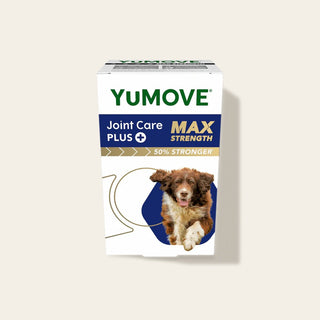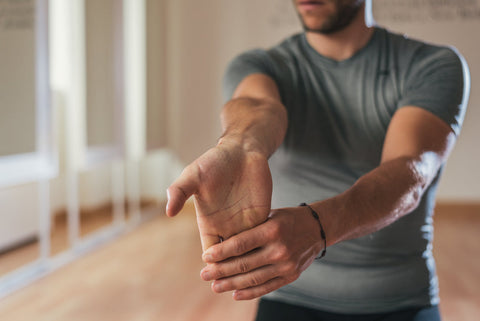

Home remedies for joint stiffness: fact or fiction?
If you’re anything like us, you’ve probably come across all sorts of different potential remedies for joint stiffness – from dietary modifications to certain types of jewellery.
But what does the science have to say about some of the most common purported home remedies for joint stiffness?
Let’s take a look…
Fact: Curcumin can help with joint stiffness

Turmeric is a little spice that packs a big punch and has become increasingly well-known in recent years for its potent health-promoting effects.
Among other things, meta-analyses have found that curcumin – a compound found in turmeric – can significantly reduce markers of inflammation in human test subjects.[1]
But what about the potential of turmeric to be helpful in dealing with joint stiffness? Is that all wishful thinking, or is there really something to it?
Well, according to a 2023 meta-analysis, turmeric – or, specifically, curcumin – really does appear to be beneficial in this regard, as well![2]
Myth: Magnetic or copper bracelets can ease joint stiffness

Magnet therapy and wearing copper jewellery are perhaps some of the most common alternative therapies for joint stiffness. The thinking behind these magnetic bracelets is that the iron in our blood is attracted to the magnets.
According to the theory, wearing magnetic jewellery close to the joints will improve circulation to the joints, deliver more nutrients via the blood, and help ease stiffness.
Copper jewellery is supposed to work in a similar way, with the claim being that trace amounts of copper absorb into our bloodstream through our skin and, therefore, compensate for a lack of copper in our diets – with one of the claimed results being reduced inflammation.
Unfortunately, a number of studies have found these interventions to have no effect on joint stiffness, beyond placebo.[3] Although the authors of one study do note that:
“Reported therapeutic benefits are most likely attributable to non-specific placebo effects. However, such devices have no major adverse effects and may provide hope.”
Fact: Flaxseed Oil and Fish Oil can help support joint health

Fish Oil and Flaxseed Oil are both known for being rich in Omega-3 Fatty Acids and are often taken in supplement form due to their many purported health benefits.
Unsurprisingly, meta-analyses of the existing scientific evidence have found that Omega-3s really can help to support joint health and mobility.[4] That’s one of the key reasons we’re so proud of our unique and Omega-3-rich ActivEase® Green Lipped Mussell—the backbone of our YuMOVE Joint Care supplements, including iMOVE Active, our triple-action daily joint support formula for men and women.
Ultimately, supplemental Omega-3s—and a diet rich in Omega-3s—appear to be important parts of an overall joint health regimen.
Myth: Heat is better than ice for stiff joints

It’s a fairly common idea that heat is better for stiff joints than cold – for example, a hot shower vs a cold compress. The reasoning behind this idea is that heat causes our blood vessels to expand and promotes increased blood flow to the area in question, whereas cold does the opposite.
In reality, though, research has found that both cold and heat can have therapeutic effects on joint stiffness,[5] so you shouldn’t rule either ice packs or a hot soak out of your daily joint care routine.
You might find that heat and cold work well for you in different situations. For example, starting the day with a hot shower to help loosen everything up and using a cold compress as you’re winding down after exercise.
Here are a few different ways you could harness the powers of heat and cold in your morning routine:
- Apply a warm compress first thing in the morning. We recommend buying a heating pad from your local pharmacy or ask your doctor for a recommendation. Rest the compress on the affected area for 20 minutes.
- Take a steamy shower to kickstart the day. A long, warm shower can help with morning stiffness and increase movement throughout the day.
- Hit the heated swimming pool. A warm pool is the perfect place to strengthen muscles and increase flexibility. Swimming is great for joint stiffness as the water reduces the effects of gravity, helping you to get a great low-impact workout in.
And some suggestions for the evening:
- Use an ice pack after an active day. Don’t own one? A bag of frozen peas will do the trick. Applying this to stiff muscles or joints can feel wonderfully soothing after an active day.
- Relax in a warm bath: Soaking in the tub has the same effect as a warm shower and will help soothe your joints. It’s also a great way of winding down for the evening in general.
- Get snug and toasty with a hot water bottle: Curling up on the sofa, or in bed, with a hot water bottle is a great way of pampering yourself and helping to soothe your joints at the same time
A note: leave enough time between applying heat and ice. We recommend waiting a couple of hours between sessions.
Conclusion
There are many different home remedies for helping to soothe stiff joints. Some of these have clear scientific backing and have been validated by recent research, while others haven’t been found to be effective.
At YuMOVE, we always err on the side of science-backed human joint supplements and suggestions. But if you find a home remedy that’s not research-backed but is safe and seems to work for you, we’re all for it! Even if it’s just the placebo effect at play – no one said placebos can’t be effective.
Of course, we always recommend speaking to your doctor about any joint care home remedy you’re interested in trying out.
If you’re looking for a joint supplement to help support your mobility, why not try iMOVE Active – our high-quality joint supplement for men and women, formulated to support an active lifestyle?
[1] https://www.ncbi.nlm.nih.gov/pmc/articles/PMC9870680/#:~:text=A%20meta%2Danalyses%20of%20ten,(TNF%2D%CE%B1)%20levels%20(
[2] https://www.frontiersin.org/journals/immunology/articles/10.3389/fimmu.2023.1121655/full
[3] https://pubmed.ncbi.nlm.nih.gov/19942103/
[4] https://josr-online.biomedcentral.com/articles/10.1186/s13018-023-03855-w
[5] https://journals.sagepub.com/doi/abs/10.1177/10547738211035502?journalCode=cnra



